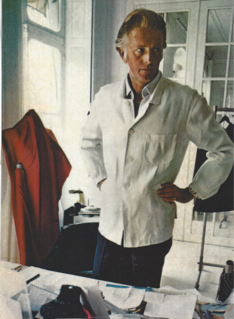A Quote by Alan Huffman
Right up until the late 18th century, when the first weighted lines were used to probe the ocean depths, many people believed the seas were bottomless - the watery equivalent of infinite outer space.
Related Quotes
One [paradox] is that pornography follows in that wake of women's liberation. The first instances of hard-core pornography were in late 18th-century in France, "the Golden Age of Women." The next wave in the 20th century comes from Sweden, one of the first countries where women voted. Then Germany, again, at the forefront of progress. Then America in the '80s, when women were closing the pay gap. And Japan, same thing.
Baroque civilization believed in two truths, which for a post-18th-century mindset are exclusive truths - we have to eliminate one to believe the other. They believed in the rational exploration of the universe, and they also believed that there was a hidden spiritual truth. Baroque thinkers were able to live the two at the same time. In any case, for me, it's necessary to live that way also.
The vast majority of those of Scots lineage living in the Ulster counties in the 18th century had come across, or their people had come across, in the 1690s. And they were victims of famine. Over that decade, 30000-50000 people were fleeing from that disaster. In terms of per capita loss, it was of the same order of magnitude as the Irish famine (of the 19th century).
Fashion has been collected and exhibited for many years. People were picking up clothing of famous individuals, like Marie Antoinette's shoe or Napoleon's hat. That part of the resistance to having fashion in museums had to do with it being associated with femininity, and with the female body. Yet, as early as the 18th century, some people were recognizing that just as you collected art, you, might think about collecting fashion for museums, because it would provide insight into the way people thought about their lives and, and the way they envisioned themselves.
I wanted to create a believable feeling for 18th Century reality in the Perfume: The Story Of A Murderer. I didn't want this typical film feel of strange people in strange costumes, not really knowing what to do or how to move. If you put an 18th Century costume on Alan Rickman, it looks like he's been wearing it forever because he inhabits the stuff. He is a character that can really travel in time as an actor and transform into this 18th Century person with seemingly no effort.
I've often wondered, what if all of us in the world discovered that we were threatened by an outer -- a power from outer space, from another planet. Wouldn't we all of a sudden find that we didn't have any differences between us at all, we were all human beings, citizens of the world, and wouldn't we come together to fight that particular threat?



































